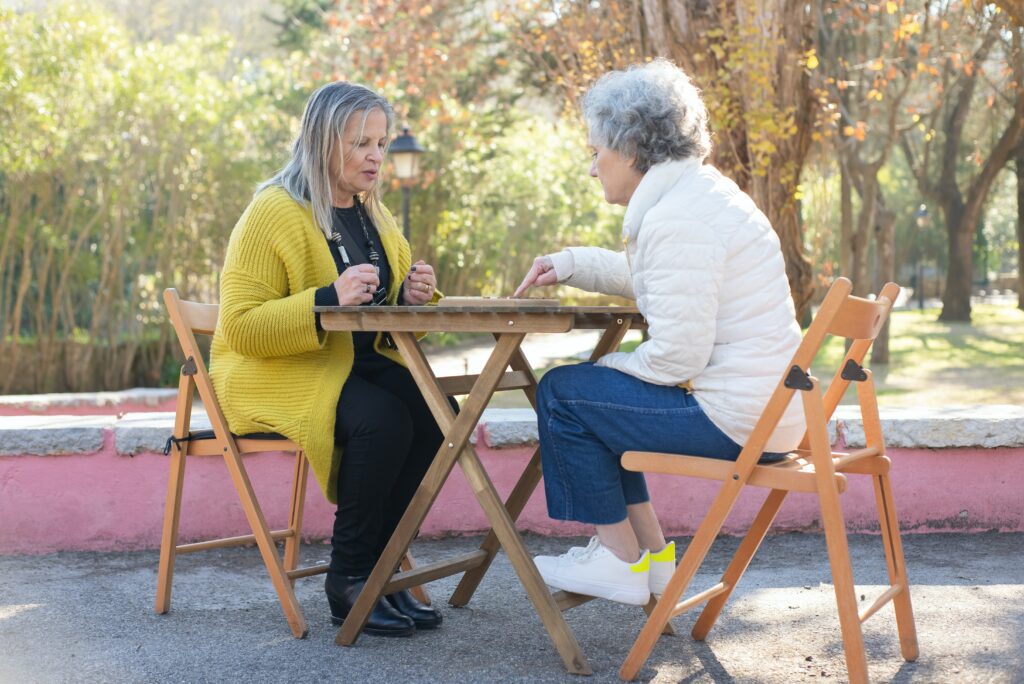Problems Faced by Old Age at Home and Our Society
It is widely accepted that old age is an inevitable, unwelcome, and problematic stage of life. As they get older, seniors frequently lose their motor skills. The simple act of carrying out daily tasks becomes difficult for them.
Because they might miss their loved ones, children, and grandchildren, your cherished parents might have emotional issues like depression. As necessary medicine, daily doctor visits, and routine check-ups are not provided in nursing homes, residents develop old age problems and receive inadequate treatment for their senior challenges.
This article describes the greatest difficulties that today’s seniors confront and how we may help them age with dignity.
Ageism: What Is It?
The phrase, which alludes to a fundamental rejection of older people’s human rights, was created in 1968 by Robert N. Butler, MD, a gerontologist, psychiatrist, and Pulitzer Prize–winning author.
According to Ursula Staudinger, Ph.D., founding director of the Robert N. Butler Columbia Aging Center at Columbia University in New York City, age discrimination in the workplace is nevertheless common even though it is illegal as of 1967, the year Congress approved the Age Discrimination in Employment Act.
Challenges in Old Age at Home
The five stages of a man’s life are typically defined as follows: infancy, childhood, adolescence, adulthood, and old age. An individual encounters many circumstances and issues during each of these stages.
It is widely accepted that old age is an inevitable, unwelcome, and problematic stage of life. After the age of 65, aging-related problems typically start to manifest, most of which are as follows:
Physiological Issues
The lack of sufficient medication, frequent medical visits, and regular check-ups in nursing homes lead to physical problems. They also receive inadequate care for their senior ailments. Physical deterioration occurs as we age.
Even if one does not immediately lose their eyes, teeth, and everything else, one starts to deteriorate physically. The physical state is influenced by a person’s lifestyle, genetic makeup, and environmental influences.
Life vicissitudes, poor eating habits, malnutrition, infectious diseases, intoxications, gluttony, insufficient sleep, emotional stress, overwork, endocrine problems, and some typical secondary causes of physical deterioration include environmental factors like heat and cold.
The nervous system’s changes significantly impact the brain. The spleen, liver, and soft organs show the most atrophy. The proportion of cardiac weight to body weight eventually declines.
The gradual change in the valves’ softness and flexibility is caused by an increase in the fibrous tissue caused by calcium and cholesterol deposits. Heart disease, various minor illnesses, and chronic diseases are also more common in the elderly.
Psychiatric Issues
They moved away from their family, as a result, becoming mentally retarded yet emotionally very weak. The prevalence of mental problems is strongly correlated with age.
Psychotic depressions are more likely to strike the elderly. Senile dementia, which is linked to cerebral atrophy and degeneration, and psychosis with cerebral artery sclerosis, which is linked to either blocking or ruptures in the cerebral arteries, are the two main psychotic illnesses that affect older people. In developed countries, these two illnesses account for over 80% of the psychotic disorders that affect older persons.
Elderly dementia
Dementia and senile affect the elderly. A strong mental clouding sets in, causing the person to become restless, aggressive, resistant, and incoherent.
They also acquire symptoms like poor memory, intolerance of change, disorientation, insomnia, failure of judgment, and a progressive formation of delusions and hallucinations. In severe situations, the patient loses his ability to move around, and his disease resistance decreases, which shortens his life expectancy.
Emotional Issue
More emotional issues are brought on by the family members’ disregard for and indifference to the elderly. The elderly feel utterly alone in the nursing home because there is no one to share their sorrow with. They frequently miss their family and cry themselves to sleep. They adore and long for their family no matter what. Daily mental illness resulted from their constant thoughts about their family’s abusive behavior toward them.
Must Read: Emotional Changes in Old Age
Financial Issue
Every person in the world has certain requirements, and older people are no different. These needs can sometimes be satisfied by their desires. Because they are residents of a nursing home, they rely on the institution and lack the resources to care for themselves.
Seniors sometimes struggle to cover their housing, food, and medical expenses. In essence, the elderly have financial issues.
Older adults frequently distribute their assets to their offspring or grandkids. However, a lack of preparedness might result in elderly needing more funds to live on. As a result, individuals could turn to borrowing money or using credit cards to augment their income, which worsens the problem. Seniors who want to learn how to manage their finances can consult a debt counselor.
Some seniors use credit cards to make large purchases, but they may need to learn how interest and late penalties are calculated. Elderly loved ones must be informed by their families about how the costs are calculated and applied to monthly invoices.
Social Issue
The elderly are socially confined within the organization since they are required to remain at the nursing home whenever they are not permitted to leave.
Given that their age is a position requiring love, care, and respect, senior persons have a great need for respect, which is natural. To retain their self-respect, seniors must be treated with respect and compassion.
Many older adults experience depression due to our society’s lack of regard for them, and many do not even feel respected by their children and relatives. The only thing the elderly want is respect. However, they are frequently asked with a harsh attitude to produce identification to verify they are older citizens. The same is true of personnel at petrol stations and retail shops.
Relationships between each person and the older and younger generations are crucial. The generational gap is immediately closed when senior folks, who have often worked hard their whole lives and have a wealth of experience, share that knowledge with their younger counterparts.
The second generational divide has become more apparent in society due to the century-long increase in life expectancy.
Issues that Older Adults in Our Society
As we become older, we think life will get easier and less stressful than it was when we were younger. That is exactly how it occurs in many cases. Finding answers might be difficult for many older folks as they face problems and issues that grow more pressing and urgent.
The biggest issues affecting seniors today are as follows:
- Health Care Costs: As we age, our needs for treatment increase and the expense of care is soaring. Regular doctor’s appointments, specialized care, surgical procedures, and drugs have a significant financial impact on seniors.
- Physical aging: As we become older, our mobility decreases. Our bones deteriorate, and we see things less clearly. As we age, nutrition, exercise, and physical therapy become even more crucial.
- Age-related loneliness: As we age, we may get more solitary. Seeing friends and relatives is more difficult, and loneliness might become a problem.
Particularly during this epidemic, this is true. The negative effects of senior isolation include increased mortality risk, sadness, anxiety, cognitive decline, increased risk of falls, and physical health deterioration.
What support can be provided to improve emotional wellbeing in elderly?
There is no justification for facing prejudice as you age. Ageism is something you can get over with enough work. The following advice could be useful.
- Talk up. Staudinger counsels against allowing your advanced age to be used against you. At family gatherings with people of all ages, you might be tempted to sit on the sidelines and watch but attempt to participate.
- Be involved in society. According to Dr. Hinrichsen, ageism can be more readily overcome by those who maintain mental and physical activity. Observe the news. Live in the moment while keeping an eye on the future.
- Show your kids and grandchildren that you’re conscious of your surroundings. Use email and social media if you feel comfortable — it can show your grandchildren you can communicate as they do.
- Be upbeat. Big part of overcoming ageism is changing one’s attitude. Enjoy and make advantage of the wisdom and experience that come with age.
- Be as self-sufficient as you can. There is such a thing as learned helplessness, claims Chun. “You won’t be able to achieve things if you believe that just because you’re a particular age, you can’t do them. If you continue to care for yourself as best as you can, you won’t lose those skills.
Must read: How to Help an Aging Loved One Emotionally
Conclusion
The specific health and social concerns connected with aging are expected to grow more significantly in the future, with the World Health Organization projecting that about a quarter of the world’s population will be over 60 by 2050. If our health systems are not overburdened in the next decades, encouraging the populace to adopt preventive steps against a decrease in health, such as before they reach old age, will become essential.
To avoid social problems such as a lack of human connection, loneliness, or poor self-esteem that can lead to social isolation or depression, it is equally important to plan for retirement and a new stage of life in our later years.






